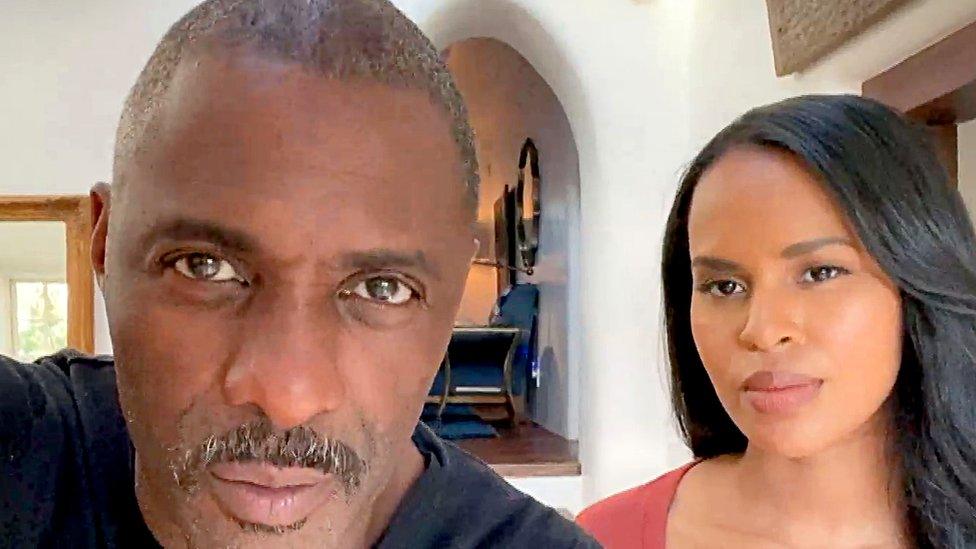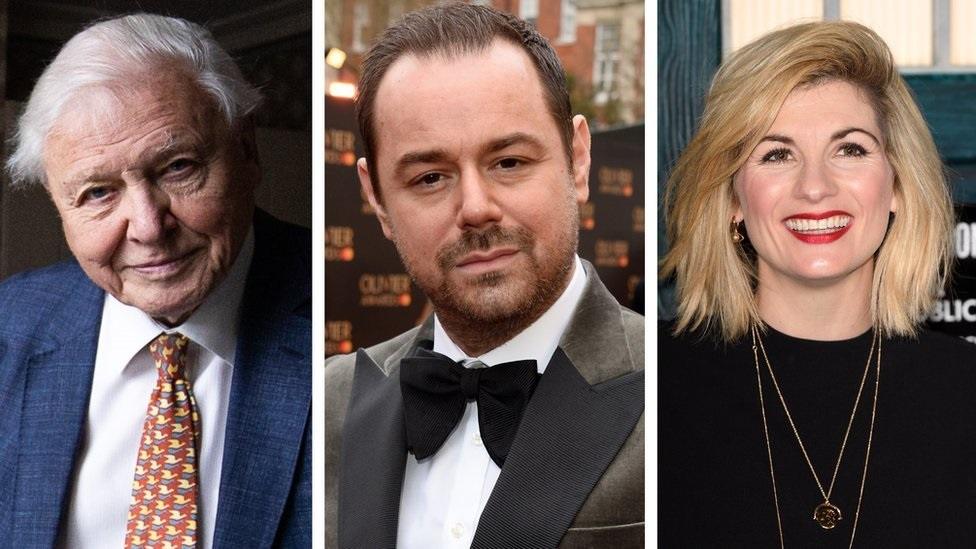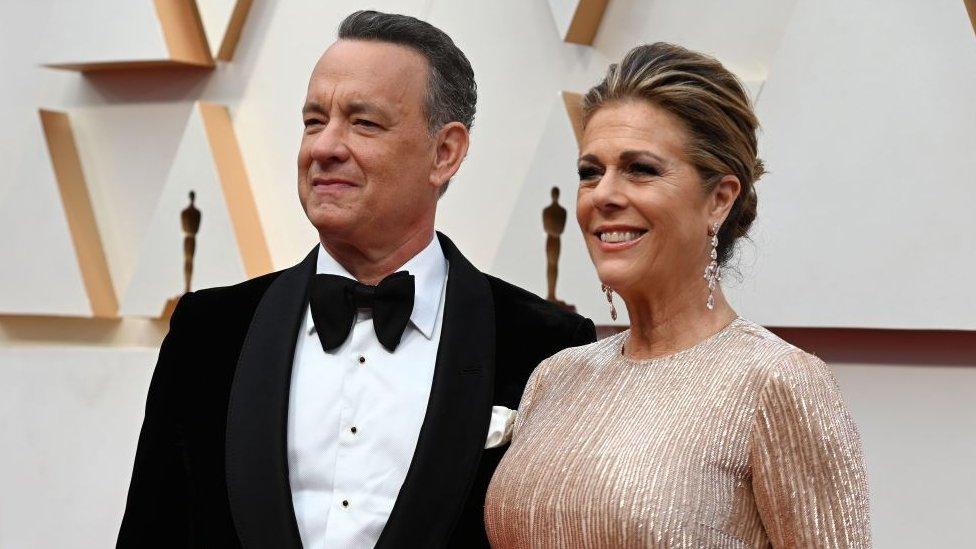Idris Elba: 'Food will run out if farmers can't farm'
- Published

Idris Elba and Sabrina Dhowre Elba are United Nations ambassadors
Actor Idris Elba has called on world leaders to ensure that an international food shortage crisis does not follow in the wake of the Covid-19 virus.
The actor, in his role as UN, external ambassador, helped to launch a $40m (£32.2m) scheme with the International Fund for Agricultural Development., external
The fund is intended to help support farmers and food producers in rural areas globally during the pandemic.
"It is about food," the Luther star told BBC News, on Monday.
"It is about the basic necessity for human beings, and that will run out if the farmers can't farm."
Idris Elba says he is "humbled to be alive" after Covid-19 scare
Idris, and his wife, model and fellow activist Sabrina Dhowre Elba, have been quarantined in their London home since last month, having tested positive for coronavirus.
They only suffered mild cases but said they were still "humbled to be alive" following the unsettling experience, which inspired them to begin the fund.
'No man is an island'
The couple now hope to lobby governments to raise $200m (£161m) more to help agricultural workers in poorer parts of Africa, Asia, Latin America and the Middle East, who might well be hit harder by the virus financially and in terms of healthcare.
Elba, whose parents hail from Sierra Leone and Ghana, also noted how the effects of such a decline in international farming could have a knock-on effect on food availability and standards in the UK.
"What we've learnt from Covid is that no man is an island," he said.
"We're all part of this world, so if we can help each other [with] forward-thinking - that's going to save a lot of lives and some livelihoods."
Dhowre Elba warned that world officials need to "start thinking past the health crisis" and on to the potentially looming financial one, which she said could send "half a billion people" into poverty.
"There's going to be a lot of people who are going to be suffering from the economic fallout," she added.
"With Ebola, more people actually died from the economic aftermath than the actual disease itself."
In a separate interview, her husband told AP, external: "I think that the world should take a week of quarantine every year just to remember this time. Remember each other. I really do."

Follow us on Facebook, external, or on Twitter @BBCNewsEnts, external. If you have a story suggestion email entertainment.news@bbc.co.uk, external.
- Published20 April 2020

- Published20 April 2020

- Published19 April 2020

- Published17 March 2020
